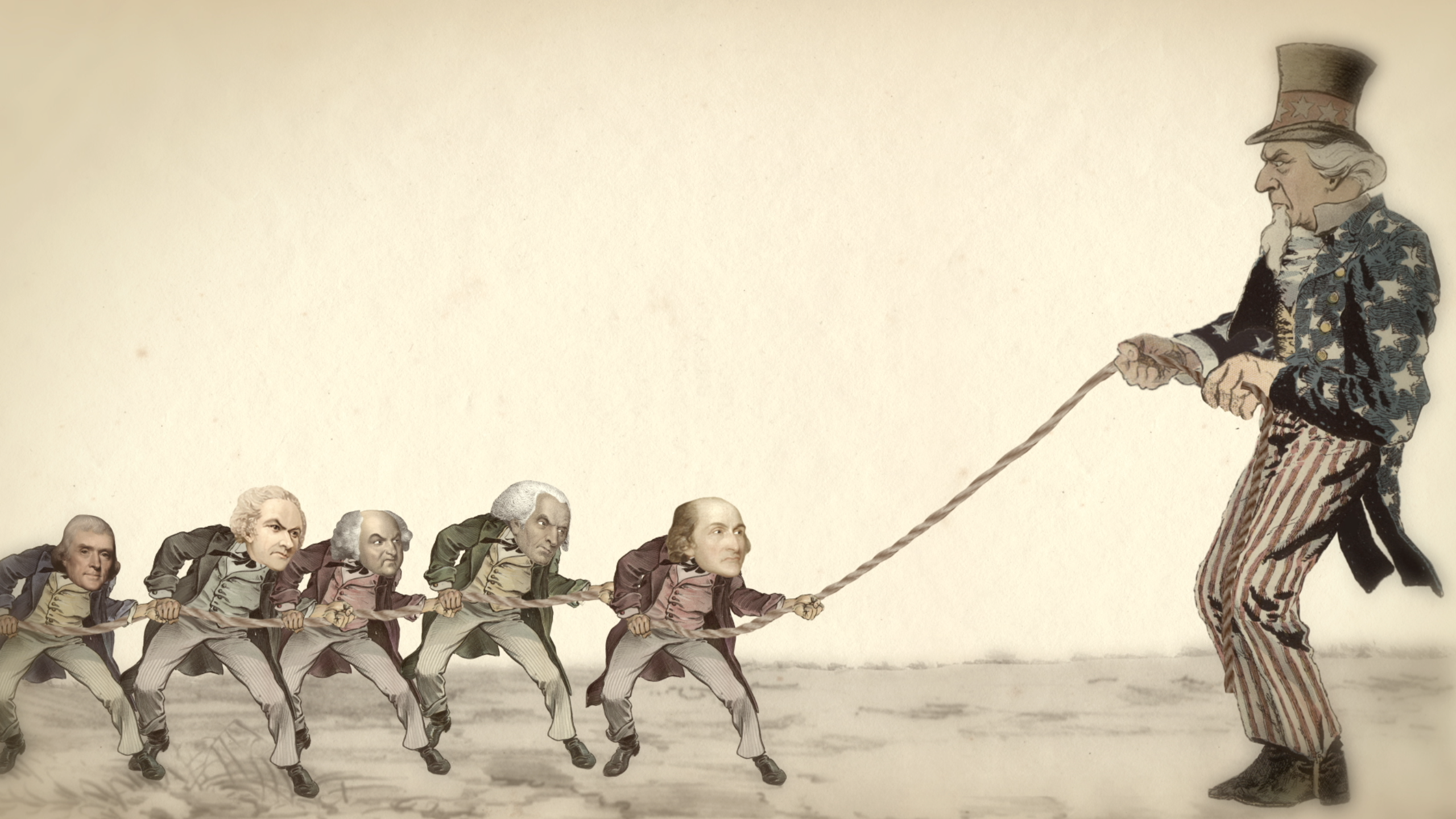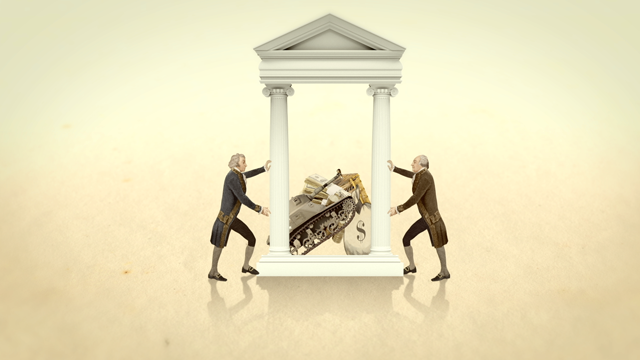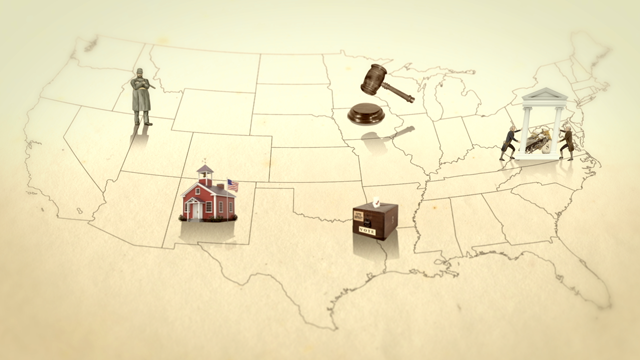
Federalism Main
Federalism is one of the most important and innovative concepts in the U.S. Constitution, although the word never appears there.

In the Tenth Amendment, the Constitution also recognizes the powers of the state governments. Traditionally, these included the “police powers” of health, education, and welfare. So many states feared the expanded powers of the new national government that they insisted on amendments during the Constitution's ratification. The most popular of these proposed amendments, which became the Bill of Rights in 1791, was a protection of state power. The new Tenth Amendment stated: “The powers not delegated to the United States by the Constitution, nor prohibited by it to the states, are reserved to the States respectively, or to the people.”
The Articles of Confederation, however, limited Congress to those powers “expressly” listed. There were no implied powers. Some advocates of states' rights interpret the Tenth Amendment similarly, but the word “expressly” was considered and rejected during the debates over the proposed Tenth Amendment in Congress. The true meaning of the Tenth Amendment, and the extent of state versus federal power, would ultimately be tested by the Civil War.
After the Civil War, some states tried to craft unique solutions to social problems, becoming “laboratories of democracy” in the words of Justice Louis Brandeis. Wyoming, which needed more women settlers, became the first state to grant women the right to vote in 1869. During the Progressive Era, states passed social welfare legislation that regulated working conditions and hours. But the Supreme Court struck down many of these state laws as violating personal liberty of the employees. Nonetheless, many Americans believe that states should be free to experiment with their own standards for social problems.
For example, some states now allow legalization of marijuana, both for personal and medical purposes. But federal law bans marijuana as a controlled substance, and the Supremacy Clause in Article VI of the Constitution makes federal law superior to state law. Therefore, the Supreme Court upheld the power of the federal government to regulate even homegrown marijuana in Gonzales v. Reich (2005).
Federalism content written by Linda R. Monk, Constitutional scholar
Federalism is one of the most important and innovative concepts in the U.S. Constitution, although the word never appears there.

One way to limit the power of the new Congress under the Constitution was to be specific about what it could do.

The most broad-ranging power of the federal government has become the Commerce Clause.

STREAM ANYTIME, ANYWHERE
